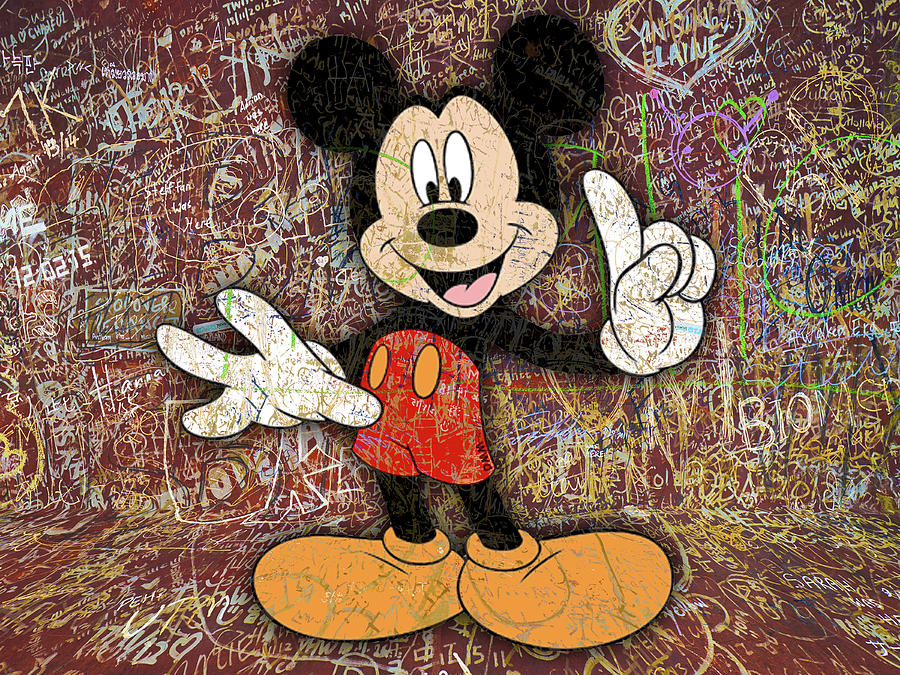We become real by negative action, not by the positive type. Positive action – which is to say, continual straining and striving – causes us to become unreal, not real. The more we try to improve ourselves, develop ourselves, make something of ourselves, the more fictional our existence becomes. We hope of course to gain something as a result of all this effort, but our gains are all pure fantasy. They are strictly fictional, just as the failures which we lament over so much are.
By straining to become what we think we ought to become we degrade ourselves and ‘straining to be what we think (or are told) we ought to be’ is the name of the game. That’s all we ever do – that’s where our benefit lies, or so we believe. We never tire of telling ourselves and others to keep on trying to be whatever it is what thought tells us we ought to be. ‘Try, try and try again’, we say. If we can’t – for whatever reason – get this to work out for us then we automatically incur the stigma of being a loser, of being a failure.
Positive action is all we know – we cannot imagine that there could be anything else. To not be putting all our money on positive action can only mean one thing as far as we are concerned – it means that we are slacking, that we are apathetic, lazy, lacking in drive and ambition. Either that, or it means that we are psychologically unwell in some way. We are depressed, perhaps. To not be trying hard to be ‘some particular way’ – whatever way that might be – has no legitimacy at all in the eyes of society.
Again, no matter how normalised positive striving might have become in this rational / purposeful culture of ours, what it actually comes down to is moving in the direction of ever-increasing unreality, which can’t really be considered to be a particularly healthy direction to be moving in! It is actually of course the exact opposite of healthy. Being in touch with reality is what mental health is all about – that’s mental health in a nutshell, if we wanted to be perfectly succinct about it. Being ‘perpetually purposeful’ is the same thing as having no relationship at all with what actually is. Being ‘100% rational’ is another way of saying that we are living entirely in a fantasy world.
Being orientated towards our purposes, our ideals, our goals is like having a love affair with our own ideas about the world, which is – needless to say – a deeply unhealthy type of relationship to get caught up in. What we’re talking about here, is, we might say, the archetypal ‘unhealthy relationship.’ As Jung says, this inevitably ends up putting us in the situation where the products of our rational mental activity gets to replace the world itself. Reality itself is the first casualty in this situation: there is ‘me’, and there is also ‘my ideas about what my situation is’, and that’s all there is. That’s my world.
Our terminal destination – when we fall under the influence of this entropic process – is this situation where there is only ‘me’ and ‘my ideas about things’ and this ‘me’, this ‘central point of reference’, is also just an idea. I have at this point become a mind-created thing in the world of mind-created things, to echo what Colin Wilson has said. I’ve become just another thought in a world made up of thoughts and to perceive this – as Colin Wilson states – is to perceive horror itself. When we aren’t aware of our predicament – the predicament of being subsumed within a tautological (or hollow) reality – we don’t experience any horror at all On the contrary, we don’t get any warning signals at all, but this isn’t to say that her situation is in any way healthy.
Talking in terms of ‘rationality’ (instead of ‘purposefulness’) makes no difference at all – it’s the same thing. The rational outlook is one in which nothing can be acknowledged unless it can be understood and this means that we live in an entirely false world, since nothing true can ever be understood. Anything that is real is bound to overflow the mental boundaries that we have set for it and that’s what knowing means, ‘knowing’ means that we have partitioned off a part of the world with our arbitrary boundaries. Unless we can fragment reality then we cannot acknowledge it as being real. Unless we can represent reality with our categories then it simply doesn’t get a look in. What the rational outlook shows us is a world that is made up entirely of ‘known things’ and known things aren’t real. Known things are generated by playing about mental categories (or ‘yardsticks’) which aren’t really there.
When we operate in the world via the agency of the rational mind then all we can ever do is relate our own thoughts, and so we are caught up in a ‘closed circuit’, the closed circuit of only being able to think about our own thoughts, as Alan watts says. Or as Baudrillard would say, we have been consumed by hyperreality, which is where we take our symbols as being the same thing as whatever it is that they are symbolising. This proves to be a terminal mistake – a mistake that we can’t escape from. All of which simply goes to underline our thesis that positive action of whatever sought always takes us away from what is real and embroils us in a fiction that we can’t help taking seriously, a fiction that we are compelled to take at face value. Anything purposeful that we do takes us away from who we really are therefore, and we are purposeful just about all the time. We can’t ‘stop making sense,’ to quote the title of the Talking Heads album.
This isn’t a philosophical argument that we can shrug our shoulders at – it’s about being able to tell what is true from what is not, and what could be more essential than this? To say something like this tends to sound deeply condescending to us because we presume that – as adults – we are perfectly well able to know the difference between what is true and what isn’t. But if that is the case then why have we created a perfectly unreal world for ourselves to live in, a world in which we spend all our time playing meaningless games and competing viciously for hollow tokens of success? If we are as well able to distinguish between truth and falsehood as we like to imagine we are then why are we so obsessed with our fictional identities and so frighteningly negligent of the world that isn’t a fiction?
This isn’t a matter of ‘intellectually debating the nature of ultimate truth’, or anything ridiculous like that, but rather it’s a matter of ‘not getting sucked into the swamp of disguised meaninglessness’ (which is the conditioned life – the life of the false idea we have about ourselves). This is a fate that lies in store for us all, in the absence of a total, no-holds-barred revolution. What we’re really talking about here – to be perfectly straightforward about it – is neurotic suffering in all its various manifestations. Neurotic suffering is universal – who amongst us is non-neurotic? And as Sogyal Rinpoche has noted, the type of life that we in the developed nations have created for ourselves is ideally suited to the creation of neurotic suffering. We couldn’t do a better job if we tried.
All of our activities – no matter how diverse they might appear – are geared towards the same end, and that is the end of psychological unconsciousness. This isn’t a vague or waffly concept that doesn’t stand up to scrutiny – on the contrary, it is very precise, very technical. What it means is that we are being controlled by our definitions of ourselves, our own images of ourselves, our own literal stories of who we are and what we’re doing. We think that we’re the star of the show, but we really we’re the ‘stooge’, the ‘puppet’.
This is such a simple principle – all thought can ever do is create literal descriptions of what’s going on and these literal descriptions trap us absolutely. They trap us by fixating our attention so that – for us – the description is the thing. ‘Expected’ takes the place of ‘Actual’. In the false world that is created in this way everything gets to be defined; there is nothing that is not represented in black and white terms, and thus there is nothing that is real. This situation is detrimental to us, to put it mildly, because instead of butter we have margarine, instead of wholesome we get ersatz, instead of truth we have to make do with lies. When we’re wrapped up in the concrete narrative that is spun by the thinking mind we aren’t free but we are told we are, we don’t have any mental health but instead we have the ‘official version’ of it, which is what we collectively agree is ‘mental health’. We don’t ever get to be sincere (or ‘true to who we are’), we get by instead by not examining ourselves too carefully. It’s all an effort in an unsustainable direction and it’ll all come to no good in the end.
When this business works then what we have is this curious thing that we might call ‘run-of-the-mill, everyday psychological unconsciousness’ (which is where instead of us playing the game, the game plays us). When it doesn’t work out then that’s when neurotic pain – of whatever variety – starts to set in to spoil our little game. The Putrefactio Phase (to use the alchemical term) sets in, just like a bad case of termite (or death-watch beetle) infestation in a timber building, and there’s nothing we can do about it. We’re lost in unreality and our frantic efforts to cure ourselves of this curse simply embroil us in it all the more. Our positive actions embroil us in unreality all the more but – as we started off by saying – ‘positive action’ is all we know, all we care about. ‘Negative action’, on the other hand, doesn’t seem to make any sense to us whatsoever — this is action that no one does, action that no one carries out, and yet it is profoundly significant all the same. There is no ‘doer’ and also there is no aim, no plan, but it is action all the same — it results in the biggest change there ever could be, after all…
Image – wallpaperset.com







Stefan
For a few, your contributions are worthwhile beyond imagination.
zippypinhead1
Thank you Stefan.